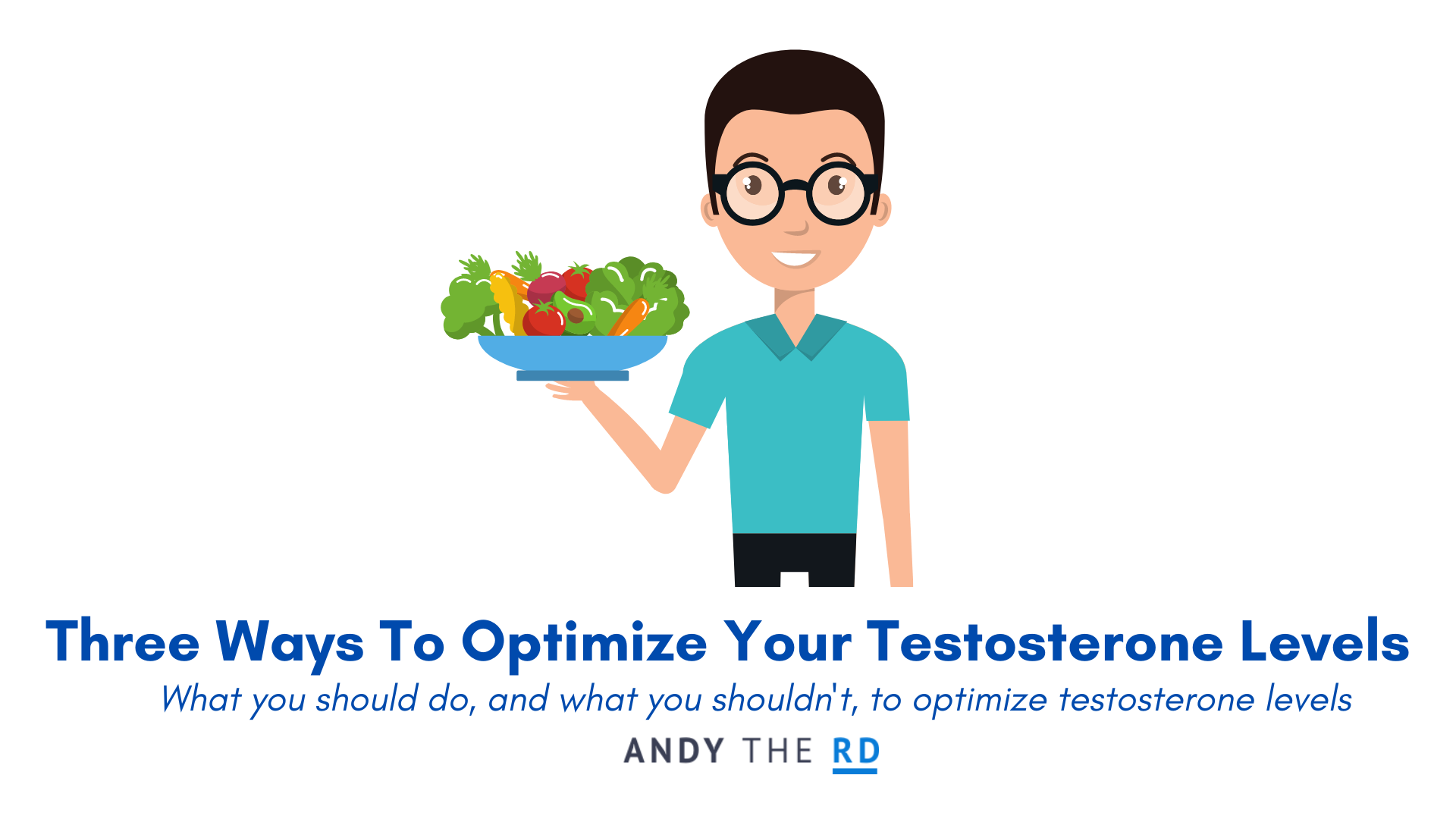Testosterone is the primary male sex hormone and plays a major role in regulating a number of physical and sexual functions in men ranging from sex drive to muscle building.
Low testosterone levels affect 5% of men aged thirty plus with that percentage increasing in older males as testosterone levels gradually drop over time.
Some men with low testosterone levels may choose to consider what is known as TRT or testosterone replacement therapy – a topic which can be discussed with your healthcare provider.
The reason why low testosterone levels are potentially problematic is because symptoms include problematic concerns such as fatigue, weakness reduced sexual desire and erectile dysfunction.
But is there a role for diet and supplementation to help maintain a man’s testosterone levels over time?
Let’s explore my three rules of testosterone optimization.
Rule #1 – Avoid Low Fat Diets
In a world of fad diets and a constant desire to pursue “silver bullet” solutions when it comes to food and nutrition, pursuing a “low fat” diet is one path that men who want to optimize their testosterone levels should not go down.
A 2021 study published out of the Journal Of Steroid Biochemistry found that low-fat diets were linked to lower testosterone levels in men.
Some men may severely limit their fat and calorie limit as part of a diet strategy, but this could have negative consequences on sexual health and vitality.
This makes sense because male sex hormones like testosterone are actually made by fats within the human body.
Additionally, many healthy sources of fat including nuts, dark chocolate, seeds, avocados and various types of fish are among the best food’s for men health – so please be wary of any diet that tells you to avoid these foods.
With that said, fat intake from processed meat ( sausages, hot dogs, ham etc) as well as heavily fried foods should certainly be moderated for optimal health.
Rule #2 – Eat More Legumes & Leafy Greens
A recently published study out of the Nutrients journal found that men who consumed more legumes (lentils, chickpeas, kidney beans etc) and more dark/leafy greens ( kale, chard, spinach, bok choy, broccoli) tended to have higher testosterone levels then men who consumed low amounts of these foods.
Legumes are particularly an important food for men’s sexual health because they are rich in two nutrients associated with higher testosterone levels (zinc, magnesium) that are often not consumed enough by most men anyway.
Magnesium, by the way, is a mineral that comes up more then the rest as it relates to testosterone production.
Want to learn which foods are highest in magnesium? I’ve got you covered.
As is Zinc, which is found in large supply in nuts/seeds/legumes – foods which most men would benefit from eating more of anyway.
Want to learn which foods are highest in zinc? I’ve got you covered.
In my professional opinion legumes and leafy greens should be thought of foods that are consumed daily, so how often are you eating them right now?
Rule #3 – Ashwagandha & Fenugreek Might Help
I’m sorry to say that the vast majority of supplements on the market that promise to “boost” your testosterone levels are simply not scientifically proven to do so.
The supplement industry plays off of men’s perceptions of the importance of testosterone and a general desire to increase levels, but unfortunately the science to support most of these products is lacking.
One supplement that does have some evidence behind it, however, is the herbal remedy Ashwagandha which is generally known for its anti-stress/anxiety effects but may also boost testosterone levels in males.
A 2019 study published in the American Journal Of Men’s Health demonstrated that ashwagandha supplementation over an 8-week period increased male testosterone levels by 15%.
Fenugreek, another herbal supplement, also has some evidence behind it in terms of slightly boosting male testosterone levels.
Andy De Santis RD MPH



